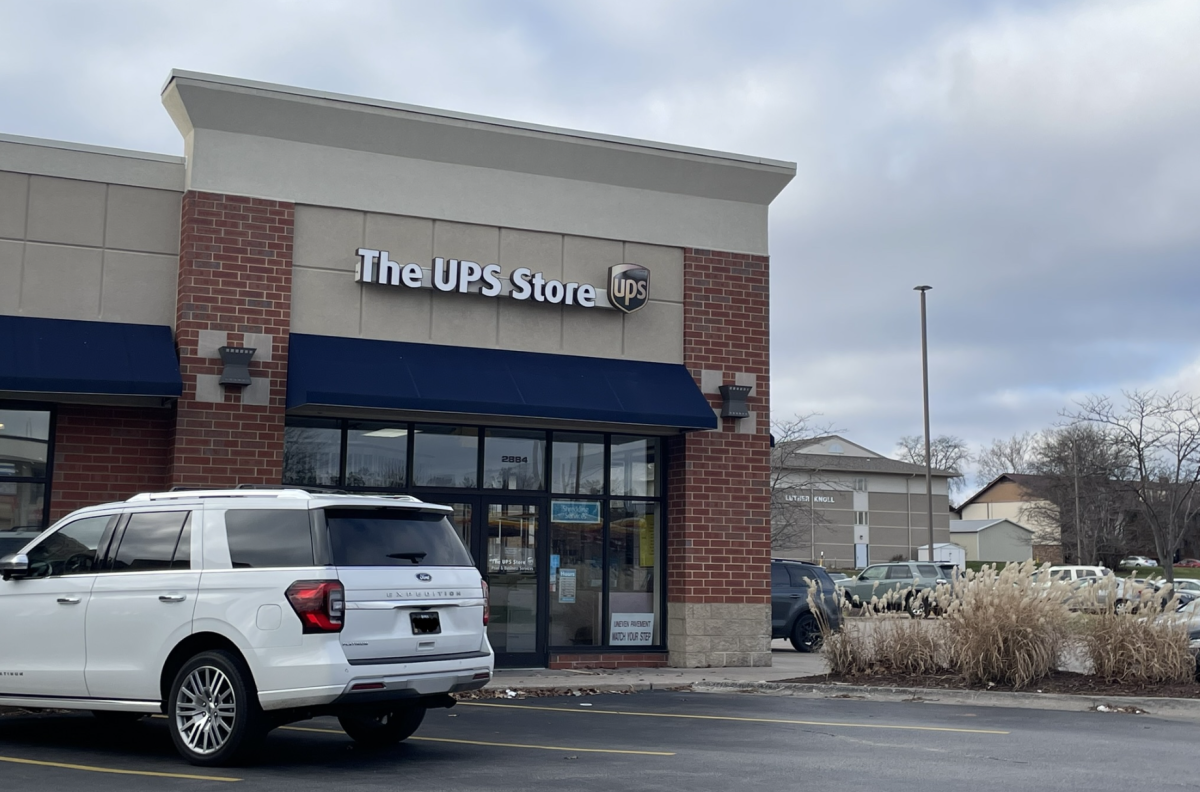Online shopping returns create trouble for shipping companies
Online shopping is currently taking over the market and causing stores to close, but the repercussions of online returns are putting a lot of pressure on shipping companies across the country.
Pv senior Maddy Huber shares her opinion on online shopping. “I think online shopping is a lot easier than in person shopping,” said Huber. “You can do it from anywhere and they have a lot of sizes in stock and more color options.”
E-Commerce has grown consistently over the last several years, even continuing to rise after the 2022 holiday season. With over $1 trillion in purchases being made online yearly, the United States Postal Service (USPS) and United Parcel Service (UPS) are overloaded with high yields of boxes needing to be delivered.
Especially around the holidays, online shopping puts a lot of stress on USPS. Along with 15 billion units of mail, USPS also delivers over 800 million packages between Thanksgiving and New Year’s day. UPS and FedEx are also swamped with holiday deliveries. UPS projects 750 million packages to be delivered during this holiday season.
The number of packages delivered has increased immensely over the past years. However, the number of packages being delivered is factored into the cost of the item at purchase, but the cost of returning packages is becoming too big of a burden for companies to take on for free.
Returns on online purchases are expensive. Not only does the price of the product need to be refunded to the customer, but the product is also shipped back to the retailer and oftentimes loses some of its value as a result of being in opened packages.
Companies lose an accumulated $212 billion to returned merchandise every year, and with over 1.5 billion packages being sent around the US during the winter season, online returns are becoming more and more damaging to a company.
Online purchases produce a 20%-30% return rate, which companies already prepare for. But the main issue around the holidays concerns shipping returns being added onto the billions of packages already needing to be delivered.
The solution that some companies have come up with is to start charging return fees.

Companies including H&M and Amazon have started to implement return fees on certain products to ship them back to source. Return fees are destined to affect the market, as people will be more hesitant to buy products.
Huber continued on how return fees might affect her shopping habits. “I feel like I will not impulse buy as much. I will actually make sure it is 100% what I want when I order it so I don’t have to worry about return fees.”
Holiday shopping online is destined to become more difficult as people will start to feel pressured to choose the right size or style for Christmas gifts.
With the advent of internet accessibility, the global market for consumers has shifted primarily towards online shopping in the recent decades.
This shift has caused major problems for the profit margins of traditional retail stores. As the use of online shopping increases, in-person shopping becomes more irrelevant.
The trend is found especially during the holiday season with special day shopping like Black Friday not gaining as much traction as in previous years. Deals are often being offered before these main sale events and less hired staff in stores during the holiday season results in less in-person spending overall.
This causes the discounts to be significantly smaller than before, which further reduces the purpose of in-person stores in comparison to the convenience and unfluctuating good sales on online shopping sites.
It has been found that sales not discounting at least 40% are not worth consumers’ extra spending due to the frequency of sales nowadays. Sales occur so frequently and with so many products that most sales become the default price and 40% is the discount needed for a product to actually be cheaper.
The effects of mass in-person spending’s decreasing in relevance have been taking effect with many people now.
Senior Jaydon Kachappilly has found himself and his family to not be participating in big holiday sales events as much as they used to. “My family and I are still involved in holiday specials like Cyber Monday, but have recently lost a lot of interest in other specials like Black Friday. It happened especially when the Covid pandemic hit and online shopping became more of a thing,” Kachappilly said.
Recent major changes like the Covid pandemic have made online shopping much more popular with its convenience and ease of use.
The potential benefits of an in-person shopping experience have largely diminished due to a limited range of product selections and need for additional effort in traveling and communication.
Junior Aayush Deshpande agrees with this sentiment. “I definitely think in-person stores have fallen a bit out of fashion. There just doesn’t seem to be any reason to go to them anymore. Online shopping has an in-person shopping beat in how convenient they are for consumers and there isn’t any obvious way stores can change that right now,” Deshpande said.
As consumerism continues to rise, online shopping has found its place in the wide reach that the market demands and in-person stores have to find new methods to prevent fading into obscurity.











